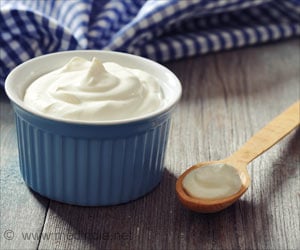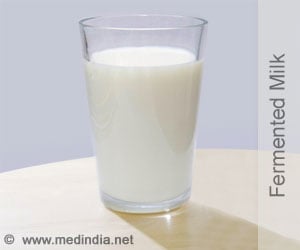Heat-killed strain of lactic acid bacteria also known as Lactobacillus casei DK128 (DK128) can provide partial immunity against non-specific influenza A virus

- An Heat-killed strain of lactic acid bacteria also known as Lactobacillus casei DK128 can offer protection against influenza A virus with lesser viral replication and weight reduction//
- Antiviral protective effects of a heat-killed strain of lactic acid bacteria, a promising probiotic are isolated from fermented vegetables
- Heat-killed lactic acid bacterial strain could potentially be administered via a nasal spray as a prophylactic drug against non-specific influenza virus infections
Influenza A virus, which infects humans, birds, and pigs, has many different subtypes based on hemagglutinin (HA) and neuraminidase (NA) proteins on the surface of the virus. There are 18 different HA and 11 different NA subtype molecules identified, which indicates numerous HA and NA influenza virus combinations. As a result, it's important to find ways to provide broad protection against influenza viruses, regardless of the virus strain.
Fermented vegetables and dairy products contain a variety of lactic acid bacteria, which have a number of health benefits in addition to being used as probiotics. Studies have found some lactic acid bacteria strains provide partial protection against bacterial infectious diseases, such as Streptococcus pneumoniae, as well as cold and influenza viruses.
This study investigated the antiviral protective effects of a heat-killed strain of lactic acid bacteria, Lactobacillus casei DK128 (DK128), a promising probiotic isolated from fermented vegetables, on influenza viruses.
Mice pretreated with DK128 intranasally and infected with influenza A virus showed a variety of immune responses that are correlated with protection against influenza virus, including an increase in the alveolar macrophage cells in the lungs and airways, early induction of virus-specific antibodies and reduced levels of pro-inflammatory cytokines and innate immune cells.
"We found that pretreating the mice with heat-killed Lactobacillus casei DK128 bacteria made them resistant to lethal primary and secondary influenza A virus infection and protected them against weight loss and mortality," said Dr. Sang-Moo Kang, lead author of the study and professor in the Institute for Biomedical Sciences at Georgia State.
"Our study provides evidence that heat-killed lactic acid bacteria could potentially be administered via a nasal spray as a prophylactic drug against non-specific influenza virus infections."
References
- Yu-Jin Jung, Young-Tae Lee, Vu Le Ngo, Young-Hee Cho.et,al. Heat-killed Lactobacillus casei confers broad protection against influenza A virus primary infection and develops heterosubtypic immunity against future secondary infection, Scientific Reports (2017). DOI:10.1038/s41598-017-17487-8
Source-Eurekalert















